Compare Power Companies in New Zealand at Canstar Blue. Electric Kiwi, Powershop, Flick, Frank Energy, Pulse Energy, Mercury, Genesis Energy, GLOBUG, Meridian Energy, Contact, Ecotricity, Slingshot and Nova Energy were compared on Overall Satisfaction, Bill & Cost Clarity, Customer Service, Ease of Sign-up, Online Tools and Advice and Value for Money.
![]()
Join Powershop you’ll get $150 free power over your first year with us*
Join Powershop through online and you’ll get 150 FREE power over your first 12 months.*
* Terms and conditions, and eligibility criteria apply.
*$150 online join credit terms and conditions
See our Ratings Methodology.
Sign up to Electric Kiwi for your power before the 26th of April to be in to win an all-expenses paid 7-night holiday to Bali for you and 4 mates!!*
Get cheaper off-peak rates and a free Hour of Power.
*Power and competition T+Cs apply. Winner will be chosen randomly
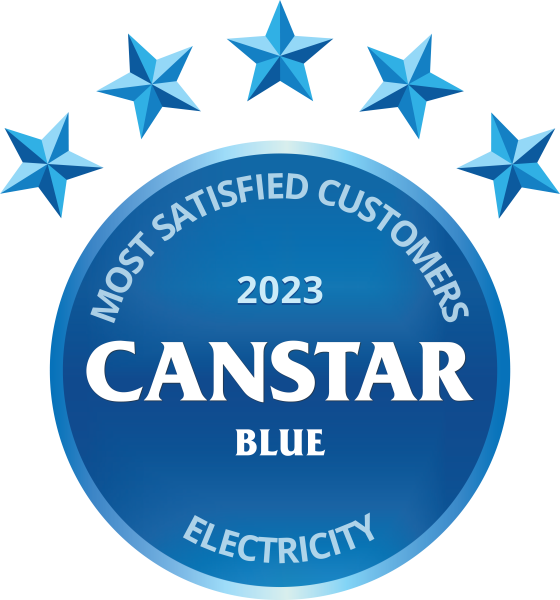
Electric Kiwi are switched on to Kiwi power consumers, who rate it No.1 for customer satisfaction.

Our review compares electricity providers on customer satisfaction, so you can discover what other Kiwis think about our compared electricity companies before you sign on with one of them. Think of it like asking hundreds of your closest mates which electricity provider they think is best!
Canstar Blue surveyed 3319 Kiwis who have an account with an electricity company and asked for their feedback on their power provider.
Respondents rate their satisfaction with their providers from zero to ten, where zero is extremely dissatisfied and ten is extremely satisfied. Brand satisfaction was rated by respondents on the following criteria:
The winning brand is the one that receives the highest Overall Satisfaction rating once all the scores from the Overall Satisfaction criteria are combined and averaged.
Brands must have received at least 30 responses to be included, so not all brands available in the market have been compared in this survey. The brands rated in this survey are listed below in order of best overall satisfaction.
Find more information on our Most Satisfied Customer methodology.

This is the third time Electric Kiwi has won our top award, and this year, once again, it does so in emphatic style: the only electricity provider to earn a top 5-Star rating for Overall Satisfaction from its customers. In addition, it earns further top ratings in four out of five other categories, plus an excellent 4-Star rating for Overall Satisfaction.
This year’s award marks a double victory for Electric Kiwi, as the power provider is also the winner of Canstar Blue’s 2023 Bundled Utilities Award, for its great broadband + power deals. You can read more about our Most Satisfied Customers | Bundled Utilities Award here!
Electric Kiwi offers four power plans for you to select from. All plans include one free Hour of Power each day. All plans have time-of-use pricing, which allows you to take advantage of lower electricity rates during off-peak hours, and save money on your energy bills.
Powershop’s great value power packs are obviously a big hit with its customers, as Powershop is only one of two providers in this year’s award survey to earn a top 5-Star rating for Value for Money. Across all categories it earns three further 5-Star ratings, plus two excellent 4-Star ratings, including for Overall Satisfaction.
Powershop works a little differently from other electricity companies. In addition to allowing you to pay for your power each month like a regular power company, it also has a prepay option, via a range of power packs that are available online, through the Powershop website and app. Many of the prepaid packs come with discounts. Packs on offer include:
Staying Power: A super-discounted special pack that is available once a month. The Staying Power discount starts off at 20% in your first year then increases by 1% each year you stay with Powershop, to a maximum of 25%.
Regular Specials: Available for a limited time each month. The Staying Power and the limited-time specials together contribute to your Special Rates.
Future Packs: Allow you to squirrel away power for the months to come. The further out you buy Future Packs, the bigger the discount. Buy six months ahead to save the maximum 10% against your Standard Rate for the month.
Fixed-price Value Packs: Have the smallest discount out of all the special packs, but come in a range of sizes.
Top-Up Packs: Allow you to buy a specific amount of power (to the nearest whole $) at your Standard Power rate, with no discount.
Standard Power Top-up Packs: Power priced at your standard rate.

Last year’s award winner, Flick Electric repeats its great run of top results in our award ratings, placing third on our table. As one of our top-rated power companies, it’s also one of only three providers to earn top 5-Star ratings on our table. In total, Flick earns a triumvirate of 5-Star ratings, including in the all-important categories of Value for Money and Customer Service.
Flick Electric is an independent power company that was founded in Wellington in 2014. It offers two plan options, with no fixed-term contracts or exit fees:
This plan is ideal if you’re using most of your power during off-peak hours, when prices are cheaper. Shift your power usage to cheaper, off-peak times and save between 21-59% (based on meter configuration, network area and load group).
Off-peak times:
Pay a simple, fixed rate all day and night. Ideal if you tend to use most of your power during peak times (7am-9am and 5pm-9pm) or if you find it hard shifting your usage to off-peak pricing.
We think Flick’s Best Plan Promise is so good, we awarded it our Canstar Blue Innovation Excellence Award 2023!
Every 90 days, Flick reviews your power usage. Flick looks at the times of day you typically use power, calculates your variable kWh and fixed daily charges, and compares them against the rates of its Flat and Off-peak pricing plans.
Flick then works out if you’re on the best plan for your household, or if there are savings to be made by changing to a different Flick plan.
And if you care about your carbon footprint, Flick is Toitū carbonzero certified.
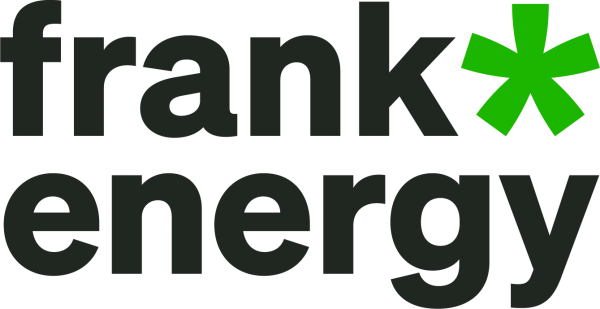
Frank Energy distinguishes itself in our awards ratings by being the only electricity company to score a clean sweep of 4-Star ratings across all categories. Frankly, it’s an excellent achievement!
Originally established in 1999 as Energy Online, the company was purchased by Genesis Energy in 2002 and rebranded as Frank in 2021.
Frank doesn’t offer any gimmicks or off-peak rates. Instead it concentrates on no-frills, cheap power across the two standard user tariffs: Low User & Standard User.
As with all NZ power companies, Frank’s electricity prices differ between regions. For more details about the prices for your address, head to the Frank website.

Pulse Energy achieves nearly a clean sweep of 4-Star ratings across our awards grid. It scores just one 3-Star rating, for Online Tools & Advice. This is understandable because, as a smaller community-owned energy company, it doesn’t have an app or offer the same online tools as some of its larger competitors.
Pulse Energy is a community-owned energy company, supplying electricity, gas, solar and broadband services to households and businesses throughout NZ.
As a Pulse Energy customer, you enjoy a low up-front price and no long-term contracts. Pulse offers:

Mercury is one of the highest profile power companies in the market. Across the board, its customers rate it consistently highly, awarding it 4-Star ratings in every category except one: Value for Money, for which Mercury earns a 3-Star rating.
Mercury is 51% owned by the government and its generation comprises 100% renewable hydro and geothermal. Its plans break down into two bands:
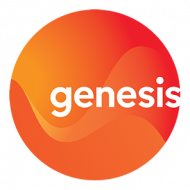
Like Mercury, Genesis is a major gentailer of electricity that is 51% owned by the government. And just like Mercury, Genesis also earns 4 Stars across every category, except one: Value for Money, for which it earns 3 Stars.
Genesis offers three residential energy plans:
Genesis customers on the Energy Plus plan regularly enjoy offers of free electricity that Genesis calls Power Shouts. Customers choose when they take their Power Shouts, so they can make the most of them.
For customers who bundle electricity and gas (either bottled or piped), Genesis provides an additional 5% discount off each bill. Genesis is the winner of Canstar Blue’s 2023 awards for both bottled gas and natural gas.

Globug earns 4 Stars for Overall Satisfaction, a rating it repeats across all categories, except Value for Money and Customer service, for which it earns 3 Stars.
A retail brand of Mercury, GLOBUG is a prepaid power retailer.
GLOBUG offers simple pricing, with a fixed daily charge and a variable kWh charge. Top-ups start from as little as $10. Consumers can check GLOBUG’s pricing for standard user and low user plans via its website.
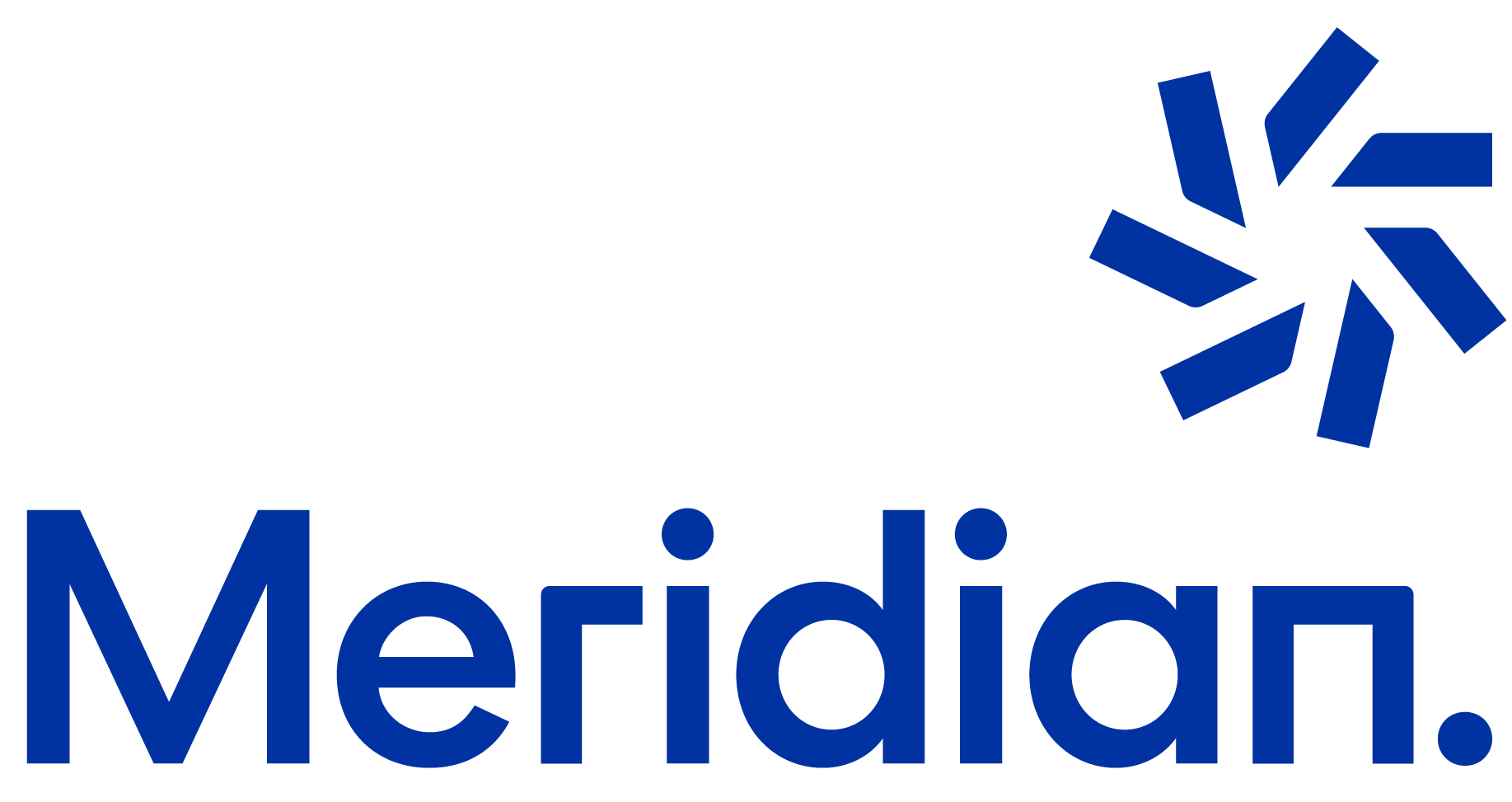
While Meridan’s brand Powershop earns a fantastic set of ratings from its customer, Meridian scores less highly. However, like Powershop, Meridian, too, earns a 4-Star rating for Overall Satisfaction, a rating it repeats in four of our six award rating categories.
Meridian is one of the country’s biggest power generators and retailers, and all of its power is from 100% renewable energy sources. The NZ government is a majority shareholder, at 51%.
Currently, if you join on a two-year fixed-term contract, Meridian is offering 12 weekends of free power. It has the following plans:
 Contact
ContactWhile not a top rating, 3 Stars is by no means a measure of dissatisfaction, and still indicated a fair level of customer satisfaction. It’s a rating that Contact achieves across all categories except one: 4 Stars for Ease of Sign-up.
Contact has a 25-year history built on a largely renewable portfolio of electricity generation assets. It owns and operates 11 power stations, and produces 80-85% of its electricity from renewable hydro and geothermal stations.
In addition to its broadband and gas bundles, it offers the following electricity plans:
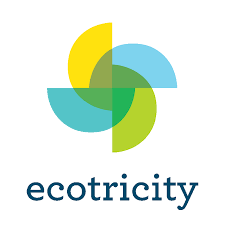
Ecotricity is a great choice for those who care about the planet and their carbon footprint. Across all categories in this year’s award, the clean, green electricity retailer earns 3 Stars.
Ecotricity is a provider of 100% Renewable and carboNZero Certified electricity, which it sources from the Monowai, Roaring Meg and Teviot hydro dams; from the Flat Hill Wind Farm; and from its Solar customers.
Ecotricity offers the option to go for a fixed rate of power, regardless of time or day. Or to choose a plan with peak and off-peak rates. All plans offer buy-back solar rates:

While many power companies offer broadband, Slingshot is a telco that offers power. Its customers award it 3 Stars across all categories, except one, for Ease of Sign-up.
Slingshot only offers electricity when bundled with broadband. It offers just two plans based on the standard user tariffs: Low User & Standard User. Its plans feature:

Rounding out this year’s award table, Nova Energy earns predominantly 3-Star ratings across all award categories.
Nova Energy is part of the Todd Corporation, which also operates its own geothermal and natural gas generators. Nova Energy offers electricity, broadband and gas. The discounts on offer differ depending on which utilities you choose to bundle:
Electricity, whichever company you purchase it from, does the same job. The only real difference in supply is the cost. So it’s no surprise that Value for Money is the biggest driver of satisfaction for Kiwi energy consumers: cited by 45% of those in our survey.
And just as there are different levels of value for money delivered by retailers, there are also big differences in the customer service on offer, which is the second most important factor for consumers, cited by a quarter (25%) of respondents.
Overall, here’s what the consumers in our survey say are their most important considerations when rating their electricity providers:
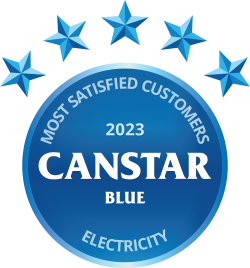
Aside from using less power by, for example, purchasing more energy efficient appliances, there are three easy steps you can take to further reduce your power bill:
Whether you’re a low or standard user affects your power plan and how much you are charged for the energy your household consumes. This is because a power bill is made up of two key charges:
And the way these charges are implemented varies depending on whether you are a standard or a low user:
A standard user consumes relatively high amounts of electricity each month. As a result, power companies offer competitive variable usage rates. To balance this, they charge a higher fixed-rate daily charge.
Low users pay a much lower fixed-rate daily charge, but significantly higher prices for the power they use. This means that their fixed costs are much lower than those of a standard user. As long as they don’t use much power, their bills will be lower.
However, because most Kiwi homes are now low users, over the next five years the low-user electricity tariff is being phased out. As a consequence, if you’re on the low-user tariff, your power bills could have already started to rise.
This is because for each year of the five-year phase-out, power companies are able to increase their daily charges for low-users by around 30c, until they are on a par with standard-user charges. However, not all electricity companies are increasing their charges. Currently some are charging around 66c per day for low-users, others are charging half that and others have cut the daily tariff altogether.
Of course, you need to balance the per kWh charge of each power plan when comparing the savings you can make from shopping around for the lowest daily charge, but there are big savings to be made.
Many power providers have off-peak power deals, offering cut-price or even free electricity. Off-peak times differ between plans and providers but, generally speaking, peak times are Monday to Friday, 7am-11am and 5pm-9pm. For example, here are the current different standard rates offered in Auckland by one electricity retailer:
As you can see, if you burn most of your electricity outside of peak times – or can easily move most of your power consumption to off-peak – there are big savings to be made.
NZ’s energy market is dominated by four big gentailers, which both generate electricity and sell it through their retail businesses:
However there are other smaller players, as listed above. To find the best deal, you’ll need to spend a few minutes researching prices on their websites. Plus, of course, refer to our customer research and awards into New Zealand’s best-loved power companies.
 What does kWh stand for?
What does kWh stand for?A kWh stands for KiloWatt Hour, which is a unit of energy that measures how much electricity your home uses. Kilo means 1000, Watt is a measure of power and H stands for hour. Appliances are often described in terms of their wattage, that is, the power they require to run.
If you run a 1000W (1kW) appliance for one hour, then it will use 1kWh of electricity. If you run a 5kW air conditioner for one hour, then that will use 5kWh of electricity. One 100W light bulb, on the other hand, would take 10 hours to use 1kWh.
Your home’s electricity usage (in kWh) is recorded by your electricity meter and passed on to your retailer for billing. So, for example, if you’re paying the national average of 32.5c per kWh to run a 1000kW heater for one hour on its max setting it will cost you 32.5c.
If you haven’t got a smart meter, your energy company may estimate your usage between physical readings.
It’s common for people to confuse kW and kWh. The difference is that kW is a measurement of power, while a kWh is a measurement of energy. That might sound nit-picky, but it’s an important distinction.
For example, a 4kW solar panel system has a maximum power output of 4kW. If that output is sustained over an hour, then the solar system will produce 4kWh of electricity. If it maintains that output for four hours, then the system will produce 16kWh.
So if you are considering a solar system and want it to cover half of your home’s electricity usage (say, 10kWh), then you don’t need a 10kW solar system, rather, you should only need a 2-3kW system – subject to the weather. Another way to think about this is to imagine kW as speed and kWh as distance. The higher the speed (kW), the greater the distance you will cover (kWh).
 This report was written by Canstar’s Editor, Bruce Pitchers. Bruce has three decades’ experience as a journalist and has worked for major media companies in the UK and Australasia, including ACP, Bauer Media Group, Fairfax, Pacific Magazines, News Corp and TVNZ. Prior to Canstar, he worked as a freelancer, including for The Australian Financial Review, the NZ Financial Markets Authority, and for real estate companies on both sides of the Tasman.
This report was written by Canstar’s Editor, Bruce Pitchers. Bruce has three decades’ experience as a journalist and has worked for major media companies in the UK and Australasia, including ACP, Bauer Media Group, Fairfax, Pacific Magazines, News Corp and TVNZ. Prior to Canstar, he worked as a freelancer, including for The Australian Financial Review, the NZ Financial Markets Authority, and for real estate companies on both sides of the Tasman.
Actively practise energy savings to reduce power bills: 65%
Rug up inside during winter rather than turn up heat: 44%
Worry about size of electricity bill: 41%
Use provider’s online tools to track energy usage: 39%
Energy efficiency is key factor in appliance purchases: 37%
Compared electricity prices over the past 12 months: 35%
Wish home was better insulated: 22%
Moved appliance usage to make use of cheaper/free power: 15%
Switched electricity providers in past 12 months: 12%
Use a prepaid power provider: 8%
Considering/planning installing solar panels in next 12 months: 7%
Have received loan or grant for energy efficiency in home: 5%
Canstar Blue surveyed 5046 New Zealand consumers across a range of categories to measure and track customer satisfaction, via ISO 26362 accredited research panels managed by Qualtrics. The outcomes reported are the results from respondents who pay bills on an electricity account. In this case, 3319 New Zealanders. Brands must have received at least 30 responses to be included. Results are comparative and it should be noted that brands receiving three stars have still achieved a satisfaction measure of at least six out of 10. Not all brands available in the market have been compared in this survey. The ratings table is first sorted by star ratings and then by mean overall satisfaction. A rated brand may receive a ‘N/A’ (Not Applicable) rating if it does not receive the minimum number of responses for that criterion.
The past winners from Canstar Blue’s Broadband ratings:

Best-rated Electricity Providers - March 26th
Charging a battery is a lot cheaper than paying for gas at the pump. But now that electric vehicle (EV) and plug-in hybrid (PHEV) owners have to pay Road User Charges (RUCs), how much cheaper …
– Read more
Best-Rated Bundled Utilities - February 28th
For most people, a standard 300/100Mbps fibre connection is fast enough for most online activities. But if your household is data hungry and regularly runs multiple devices to stream HD video or play online games, …
– Read more
Appliances - February 22nd
A couple of years ago, a member of team Canstar signed up for a long-term power plan and broadband bundle to snag a “free” appliance. At the time, they were excited about their new washing …
– Read more
Best-Rated Bottled Gas Suppliers - February 15th
Laundry hacks
Laundry can be a chore, but with some clever hacks, you can make the process more efficient and effective. Here are some laundry hacks to simplify your routine:
1. Sort clothes properly
Always separate your clothes …

Best-rated Electricity Providers - February 12th
Induction cooktops
What is an induction cooktop?
An induction cooktop uses an electric current passing through copper wire to produce an electromagnetic field of energy. It’s important to know that this doesn’t produce heat. So, your cooktop …